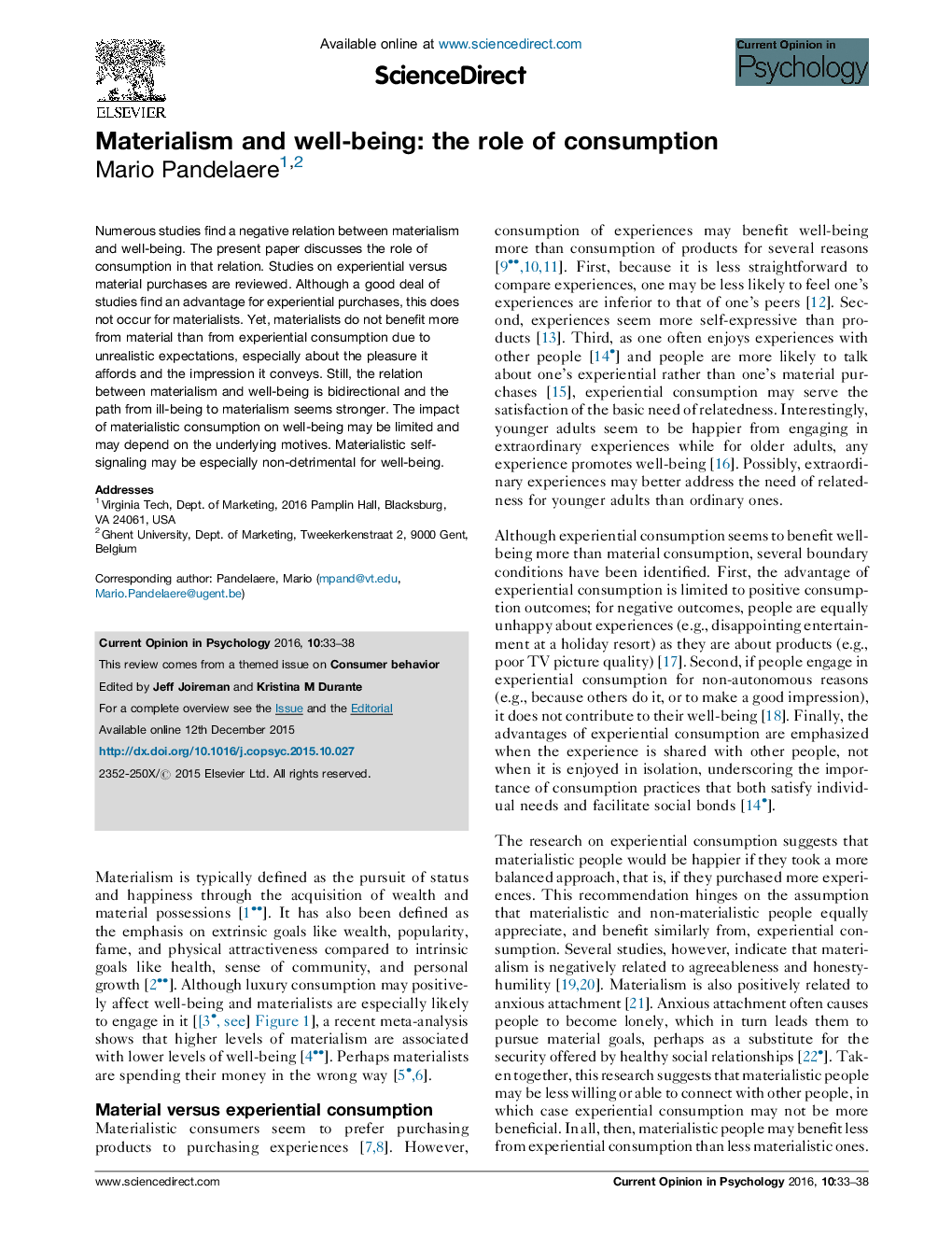| Article ID | Journal | Published Year | Pages | File Type |
|---|---|---|---|---|
| 879268 | Current Opinion in Psychology | 2016 | 6 Pages |
•There is a robust, negative relation between materialism and well-being.•A good deal of research implicates materialists’ consumption style.•Most of the negative relation may be non-consumption-related.•Materialistic consumption may not be detrimental, depending on its motives.
Numerous studies find a negative relation between materialism and well-being. The present paper discusses the role of consumption in that relation. Studies on experiential versus material purchases are reviewed. Although a good deal of studies find an advantage for experiential purchases, this does not occur for materialists. Yet, materialists do not benefit more from material than from experiential consumption due to unrealistic expectations, especially about the pleasure it affords and the impression it conveys. Still, the relation between materialism and well-being is bidirectional and the path from ill-being to materialism seems stronger. The impact of materialistic consumption on well-being may be limited and may depend on the underlying motives. Materialistic self-signaling may be especially non-detrimental for well-being.
